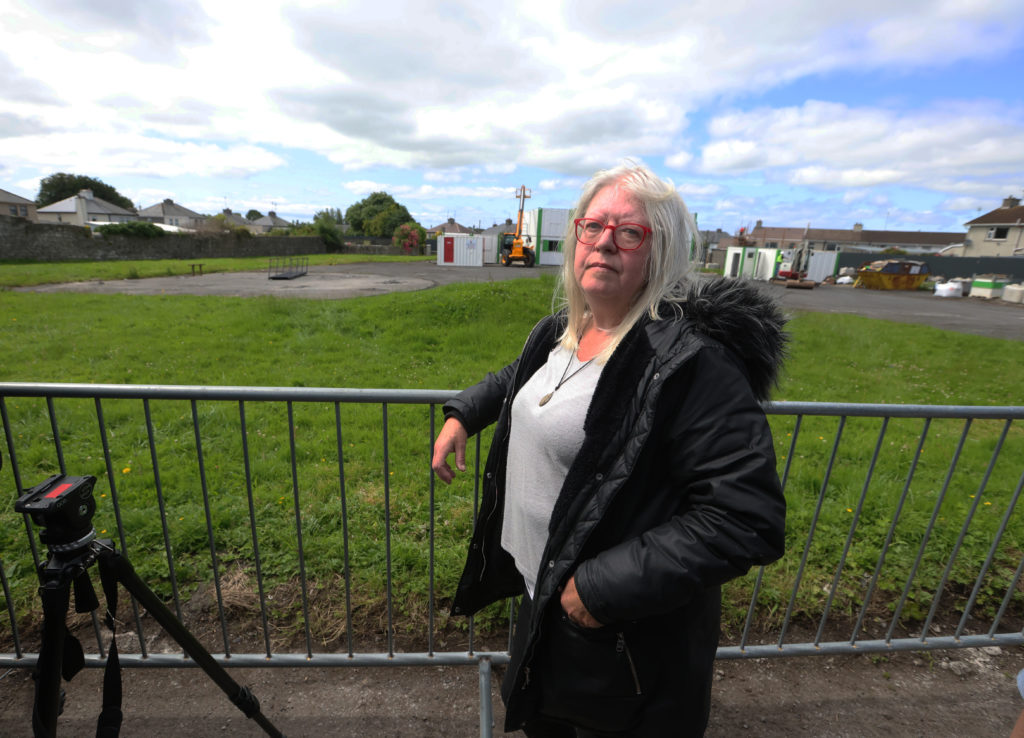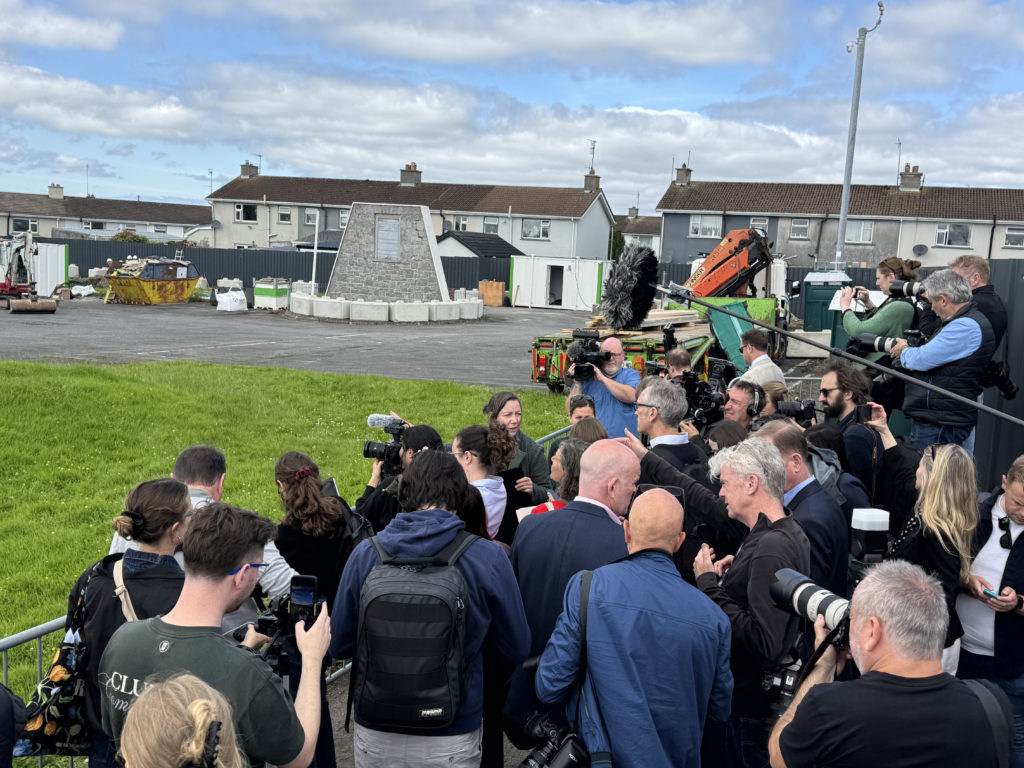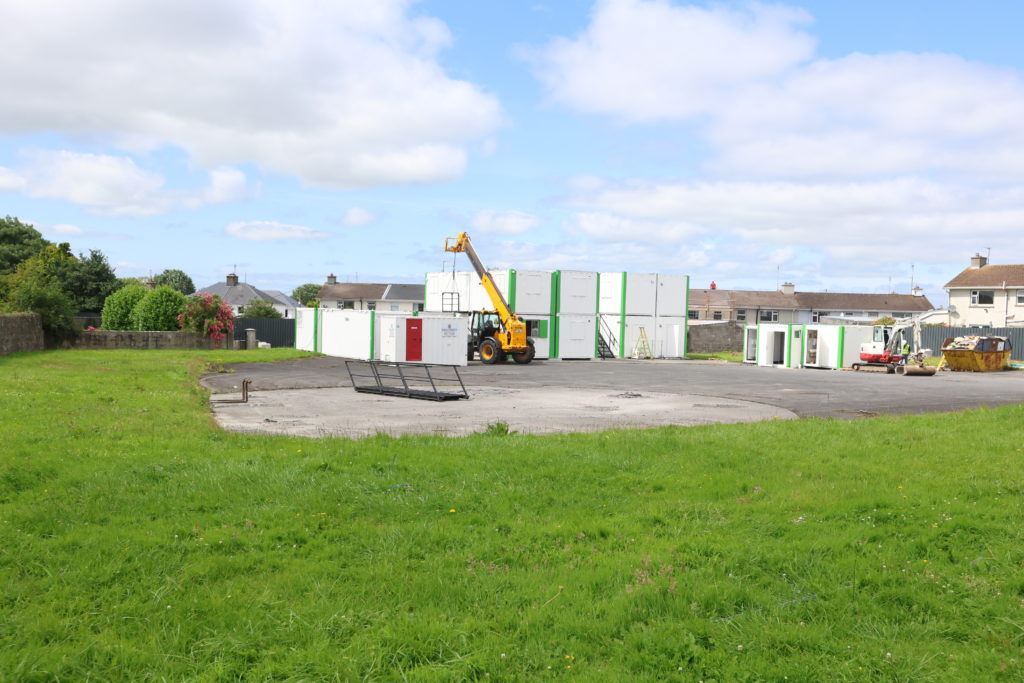FAMILIES of the hundreds of children believed to be buried at a former mother and baby home in Co. Galway are visiting the site today.
Survivors of the home in Tuam and relatives of the nearly 800 children who are believed to have died there, are attending a ‘Family Day’ ahead of the excavation of the site.
Preparatory works got underway at the site on Monday, June 16.
 Anna Corrigan, who believes two of her brothers were buried in the mass grave, pictured at the site in Tuam, Co. Galway
Anna Corrigan, who believes two of her brothers were buried in the mass grave, pictured at the site in Tuam, Co. GalwayToday work will stop to allowe relatives a private viewing of the area which will be carefully excavated over the next two years.
Some 796 children are believed to be buried in a septic tank at the former home, while it was in operation under the Bon Secours sisters from 1925 to 1961.
 Dr Niamh McCullagh, forensic archaeologist, surrounded by media at the site on Tuam
Dr Niamh McCullagh, forensic archaeologist, surrounded by media at the site on TuamIn 2010 local amateur historian Catherine Corless uncovered the mass grave after finding death certificates for 796 babies and children, but no burial records.
The excavation work will allow those remains to be exhumed.
Apart from today, the location will be closed off to the public while the work is ongoing.
The Office of the Director of Authorised Intervention, Tuam (ODAIT), which is responsible for the excavation, previously confirmed that it was important to them to invite the families to view the works that had already taken.
 The excavation works got underway at the site on June 16
The excavation works got underway at the site on June 16In a briefing held yesterday, Daniel MacSweeney, who leads ODAIT, said today was "the most important event of the week”.
During that event, Dr Niamh McCullagh, a forensic archaeologist working with ODAIT on the excavation, confirmed that a “test excavation” which they completed in 2016 discovered 20 chambers within a disused sewage tank containing infant remains ranging from 35 foetal weeks up to three years old.
They found the remains dated from a period matching the operation of the institution between 1925-1961.

